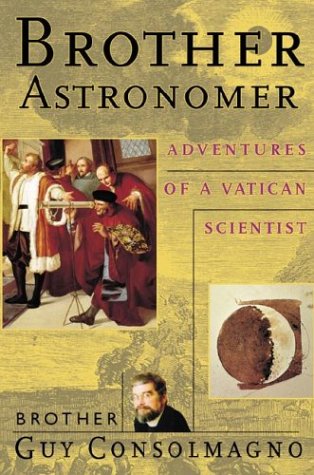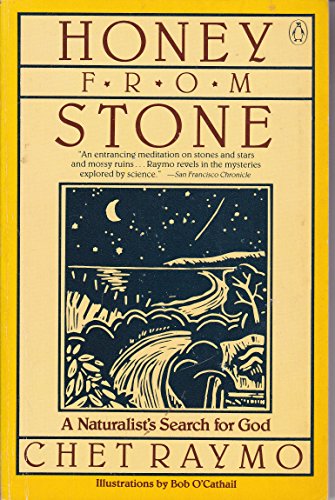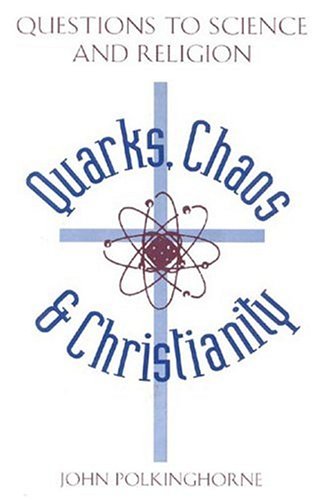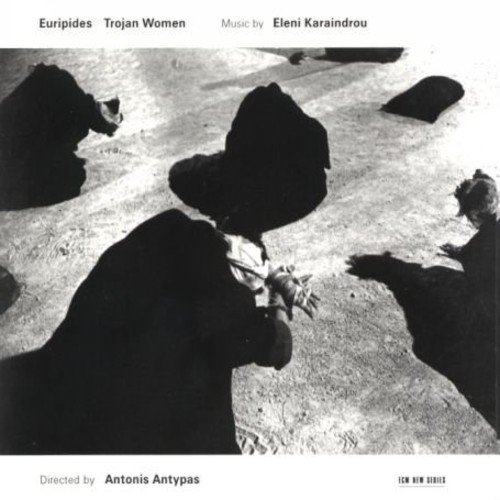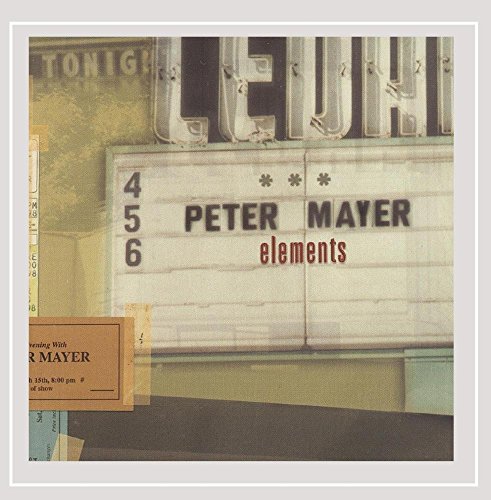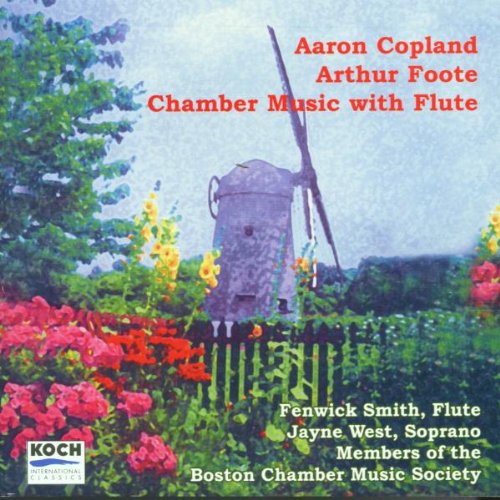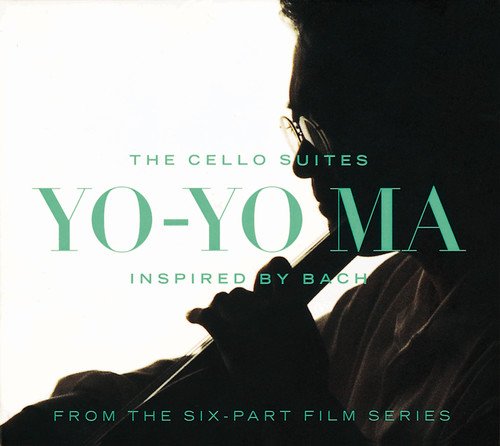Carl Feit, Anne Foerst, and Lindon Eaves
Science and Being
Many of history’s greatest scientists considered their work to be a religious endeavor, a direct search for God. Pioneers like Newton, Copernicus, and Galileo believed that their discoveries told humanity more about God’s nature than had been known. Beginning in the early 18th century, science and religion came to be at odds — the gap widening most famously with the publication of Darwin’s On the Origin of Species.
In recent years, a new dialogue has begun, driven by leading scientists across the world. Host Krista Tippett explores with three scientists, each of whom is working in a field that’s rapidly advancing our understanding of what it means to be human. From very different perspectives, they suggest that our most sophisticated 21st-century discoveries may be driving us back to questions of faith.

Image by Rohan Makhecha/Unsplash, Public Domain Dedication (CC0).
Guests
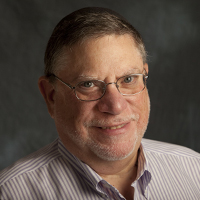
Carl Feit is an immunologist at Yeshiva University in Manhattan and a scholar of the Talmud.
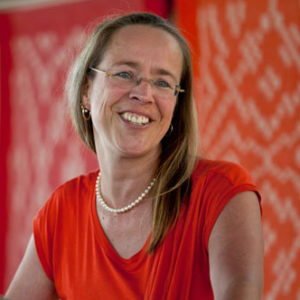
Anne Foerst is a computer scientist and former theological advisor in the MIT Artificial Intelligence Lab.
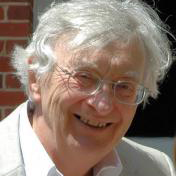
Lindon Eaves is a geneticist at Virginia Commonwealth University and an Anglican priest.
Transcript
September 23, 2004
KRISTA TIPPETT, HOST: This is Speaking of Faith, conversation about belief, meaning, ethics and ideas. I’m Krista Tippett. Today, “Science and Being.”
LINDON EAVES: There’s a wonderful passage in one of Einstein’s essays where he asks the question `What is it,’ you think he says, `that motivates the scientist to work the long hours of the night trying to find the answer to the complex puzzles of life, you know, when most people have long ago given up?’ And — and of course, that’s a profoundly spiritual question.
MS. TIPPETT: Many of history’s greatest scientists considered their work to be a religious endeavor, a direct search for God. Pioneers like Newton, Copernicus, even Galileo believed that their discoveries told humanity more about God’s nature than had been known before. But beginning in the early 18th century, science and religion came to be at odds. The gap widened most famously with the 1859 publication of Charles Darwin’s Origin of the Species.
CARL FEIT: I believe that — because of my Jewish background that diseases are all curable. It — it may not — you know, from a scientific point of view, it may be that there are some diseases we can cure and others not. But I — I don’t believe that. I don’t believe that God gave us a challenge that we are not able to meet if we gather up all our resources and all our strengths and focus on — on what has to be done.
MS. TIPPETT: Many of history’s greatest scientists considered their work to be a religious endeavor, a direct search for God. Pioneers like Newton, Copernicus, even Galileo believed that their discoveries told humanity more about God’s nature than had been known before. But beginning in the early 18th century, science and religion came to be at odds. The gap widened most famously with the 1859 publication of Charles Darwin’s Origin of the Species. In recent years, though, a new dialogue has begun driven by leading scientists across the world. Today on Speaking of Faith, we’ll explore this new terrain by touching down in three disciplines: biology, artificial intelligence and genetics. We’ll speak with three scientists, each of whom is working in a field that’s rapidly advancing our understanding of what it means to be human. From very different perspectives, they suggest that our most sophisticated 21st-century discoveries may be driving us back to questions of faith.
DR. FEIT: What’s interesting to me is in the last 20 years, there’s been a serious intellectual, kind of, academic reopening of the dialogue between science and religion to explore a lot of the traditional areas where — where — where science and religion have seemed to become in conflict.
MS. TIPPETT: Dr. Carl Feit is an Orthodox Jew and an immunologist at Yeshiva University in Manhattan.
DR. FEIT: I personally feel that a lot of the traditional science-religion issues really have to be readdressed in light of modern science.
MS. TIPPETT: Carl Feit wrestles with the great questions of science and religion as he works on the frontiers of cancer research, and as he studies the Talmud. The Talmud is the ancient repository of Jewish oral tradition which was composed over a period of roughly 1,000 years. It’s a vast free-flowing reflection wandering over Jewish law and the entire course of human knowledge.
DR. FEIT: One of the wonderful things about Talmud is that even when you study it your whole life, you keep discovering it. In that way, it’s comparable to other great works of literature, and for the 1,500 years since the compiling of the Talmud, rabbinic thought has continued to analyze it. So the excitement of it is that it’s an ongoing dialogue that cuts across the generations.
MS. TIPPETT: How does that bounce off of your work as a scientist, as a researcher working with the very earthy reality of the human body and, in fact, disease in the human body?
DR. FEIT: I come from a tradition in Judaism which looks at the story of Genesis in the beginning of the Bible and understands that God is the creator of the world and of the universe, but that he created it in an incomplete state. It’s not in its perfected state precisely because there are still diseases to be cured and bridges to be built and people to be fed. So my passion for working on cancer has always fit in with my religious, theological beliefs that this is precisely what human beings are supposed to be doing.
MS. TIPPETT: I heard a public health official the other day refer to cancer as a naturally occurring form of bioterrorism. But I wonder if there isn’t some kind of paradox in you as a person of faith working with the human body — is there a sense in which you also have to admire the intricacy of this part of the creation at the same time that you are endeavoring to eradicate it? Does that make sense?
DR. FEIT: Yes, it does. It does. One of the fascinating things about cancer is that it is the human body turned against itself, not just in the sense of other degenerative diseases where the body stops functioning, but that cancer cell is your cell which is growing now at the expense of you. I like to say the cancer cell goes into business for itself. So from the point of view of biology, every cell is — is measured — its biological success is measured by its ability to reproduce itself successfully. Cancer cells do that. They reproduce themselves all the time, better at — you know, at a certain point, better than the rest of the cells of your body.
MS. TIPPETT: Right.
DR. FEIT: So from a certain point of view, from a biological point of view, you can say, well, you know, they’re — they’re really successful. That’s an intriguing scientific aspect of doing cancer research. It leads me to think a number of things, and that is the two-edged nature of the material world and of the universe that we live in. The physical universe doesn’t come beset with values. It’s kind of neutral in the sense that, A, it can be used for good and it can be used for bad. You referred earlier to a kind of bioterrorism and things like that, and that — that is certainly true. But it — it’s also morally neutral. I don’t find a moral or ethic that is in any way easily discernable from the study of science. There’s a — there’s general phi — you know, moral — moral philosophy; moral ethics provide somewhat of a framework. But I have found that the richest source of moral insight comes from religious tradition.
MS. TIPPETT: You know, that’s very interesting, and I — I don’t think I have a complete thought here, but to think about the vastness of nature and religious tradition as something which provides the — the proper context or an illuminating context to make sense of that — is that…
DR. FEIT: Yes. Yes. From the scientific perspective, everything that we can discover we should discover. The problem comes up: What do you do with something once you’ve discovered it? So that was the moral dilemma that was faced by the scientists after World War II or, for some of them before, World War II when they realized that they were working on exploring and exploiting the potential energy that’s present in an atom, that that’s a two-edged sword u — that could be used to destroy humanity. But it also can be used to cure cancer. We use radionuclides in our treatment of cancer. So from the scientific point of view, you’ve made a discovery. What’s going to happen with that discovery, and how will it be used with human beings?
MS. TIPPETT: And you’re saying that…
DR. FEIT: And again, I…
MS. TIPPETT: …that religious tradition is the only place, the only repository of — of appropriately…
DR. FEIT: Yeah.
MS. TIPPETT: …complex answers to those questions?
DR. FEIT: In my experience, yes.
MS. TIPPETT: Uh-huh.
DR. FEIT: What — one of the wonderful things about Talmudic scholarship is because it was always so open-ended and broad-ranging that it is virtually impossible not to find some precedent for whatever new technological problem arises. The underlying discussion was probably had, you know, hundreds if not thousands of years ago, and so you have a framework for looking at what looks like a new problem.
MS. TIPPETT: Even something like cancer research or cloning.
DR. FEIT: Even something like cancer research and cloning.
[Excerpt from musical selection]
MS. TIPPETT: I wonder if you can describe for me some particular moments in your career as a researcher and a scientist when you came across — you know, when you made concrete discoveries which illuminated your understanding of the nature of God.
DR. FEIT: One of the things that you can’t help noticing as a scientist is that the world is — is almost infinitely complex and intriguing, so it’s — it’s like a giant — a giant jigsaw puzzle or a giant — a giant intellectual game that — that scientists can play. We just keep delving deeper and deeper and we find these new layers of — of meaning and logic and significance. But nature doesn’t give her — give away her secrets easily, and I think that was — I think that’s a paraphrase of — of Einstein, that it’s not all there for the having. You have to search it out, you have to dig it out. It requires a great deal of effort in order to find it. The theological take that I have on that is that God, in his wisdom, does not immediately reveal himself in the world, and so my science, again, does affect my theology because I — I — I go to Jewish tradition and, of course, in Jewish tradition I find basis for — for that. Jewish tradition talks about the hidden face of God. And so rather than driving me to question God’s existence, I understand that if I want to understand the hidden face of God I have to delve into it. I have to work a little bit harder, just like one doesn’t see the atoms and the molecules floating around when you look at the top of the table.
MS. TIPPETT: I think just on the surface there might seem a paradox. Someone might say that — that precisely the problem you work with of cancer is — is an aspect of creation which — which might seem to be a sign of the absence of God or — or the recklessness of God.
DR. FEIT: That’s — I — I understand that that’s the — that’s the part of nature that God left for us to finish up…
MS. TIPPETT: Yeah. You’re right.
DR. FEIT: …to find the cures.
MS. TIPPETT: I did hear something when you talked about your discovery of — in your work of nature as there’s an element of it being a great, a vast intellectual game. And when you used those words, I — I really saw this compatibility between the intellectual, traditional Judaism, in which you have lived all your life, and — and this endeavor, which is secular, I supposed, in a strict sense.
DR. FEIT: Yeah. Yeah. Yeah. I like to call it general rather than secular…
MS. TIPPETT: OK.
DR. FEIT: …because — because secular kind of implies that it’s not religious. It’s — there’s religious and there’s secular. I like to talk about my — my Torah studies and my general studies, but I don’t really believe that there’s anything that I do that is — that is secular, that is, you know, not — not within the — the framework of — of — of — of God and theology.
MS. TIPPETT: Carl Feit is a professor of biology at Yeshiva University in New York.
I’m Krista Tippett, and this is Speaking of Faith. Today, “Science and Being. “Next, the brave new world of artificial intelligence.
[Excerpt from “Star Trek: The Next Generation”]
Lieutenant Commander Data (Played by Brent Spiner): As Doctor, what is the definition of life?
DR. BEVERLEY CRUSHER (PLAYED BY GATES MCFADDEN):That is a big question. Why do you ask?
COMMANDER DATA: I’m searching for a definition that will allow me to test an hypothesis.
DR. CRUSHER: Well, the broadest scientific definition might be that life is what enables plants and animals to consume food, derive energy from it, grow, adapt themselves to their surroundings and reproduce.
COMMANDER DATA: And you suggest that anything that exhibits these characteristics is considered alive.
DR. CRUSHER: In general, yes.
COMMANDER DATA: What about me? I do not grow. I do not reproduce. Yet I am considered to be alive.
DR. CRUSHER: That’s true. But you are unique.
COMMANDER DATA: Huh. I wonder if that it so.
DR. CRUSHER: Data, if I may ask, what exactly are you getting at?
COMMANDER DATA: I’m curious as to what transpired between the moment when I was nothing more than an assemblage of parts in Dr. Soong’s laboratory and the next moment when I became alive. What is it that endowed me with life?
MS. TIPPETT: “Star Trek”‘s Commander Data is a machine, but his question is a human one and it begs both scientific and theological reflection. What makes us, any of us, more than an assemblage of bodily parts? What gives us life? What gives us humanity? There is a computer scientist and theologian who gives a speech entitled Commander Data goes to Divinity School. For four years, German-born scientist Anna Foerst was the theological adviser in the MIT Artificial Intelligence Laboratory, where a new generation of embodied robots is being created. These machines do not learn like traditional computers by having knowledge programmed in. They learn the way human babies learn, through physical interaction with their environment and especially through relationship with human beings. They have partial bodies which are programmed to make them capable of touch, sensation and emotional response. Their names are Cog and Kismet. Anna Foerst.
ANNA FOERST: Cog and Kismet are two very cute, very interactive, very emotional and humanoid robots, and Kismet is even more interesting than Cog because Kismet has the same amount or similar amount of processors and all that, but it’s all concentrated on facial expressions: big blue eyes, long eyelashes, furry brows. When Kismet looks sad you want to kind of, you know, make it happy again; when it’s happy you smile — isn’t that — you — you basically react with it like you do with a baby. I mean, it’s astonishing. And of course, that raises all sorts of theological issues.
MS. TIPPETT: Anna Foerst is currently authoring a book entitled “On Robots and Humans …and God.” As she worked with Cog and Kismet, she made discoveries which shed light on creation, on her understanding of her own Christian faith and on the core of what it means to be human. And she insists that as computer scientists seek to build more and more intelligent machines, they’re driven to ask theological questions.
DR. FOERST: There are these most brilliant engineers and computer scientists at MIT, the cradle of artificial intelligence, and they’re all brilliant people there trying to build something remotely like a human baby. And the difference is still so huge. And it makes you very modest. You know, it makes you admiring the human system.
MS. TIPPETT: Initially when I heard about this, I wasn’t quite sure that I could see how you could make much theology out of this, and then as I started getting into it, all of these basic theological questions and subjects just jumped off the computer screen. And so I wondered if I could just name some of those questions and ask you how your theology has evolved through what you’ve experienced working with Cog and Kismet…
DR. FOERST: Oh, interesting, yes.
MS. TIPPETT: …on these subjects.
DR. FOERST: Let’s do it.
MS. TIPPETT: OK. And the first one is, as I’m looking at the pictures on the Cog website of Cog in creation, there’s the head — the old Cog head and then here — here’s the one that really stuck with me: the first arm. And it’s so richly evocative and I thought, `All right, this is creation; this is Genesis.’ And so I wonder if you’d say a little bit about how you interpret the Genesis story, the matter of creation and live with it as a piece of your theology, knowing what you know how through working with these robots.
DR. FOERST: When I came to this whole field, I basically interpreted the desire to build humanlike intelligent machines as hubris, as arrogance, as trying to be like God, so — so — so that was kind of the beginning point. And I think it’s important to point that out because, indeed, my whole theology and my whole understanding of what it means to be human and my whole spirituality have been radically changed. And I cannot really chronologically say that, so I just give you bits and pieces of discoveries.
MS. TIPPETT: Fine.
DR. FOERST: The first thing was, indeed, this discovery of how much fun that people have in doing this thing. So there is this whole joy. There’s just something in engineering that probably everyone who builds anything can share if you really built something and it works, it works the way you envision it. It’s a feeling of satisfaction which is so amazing.
MS. TIPPETT: `And God saw what he had made and it was very good.’
DR. FOERST: Ah, yeah. And it was very good. Exactly. So it doesn’t mean playing God. No, you could actually interpret it quite the other way. When God created us he gave us his own creativity. God created us in God’s image. And that leads us directly to a Jewish concept of Golan building. The mystics of the 14th, 15th, 16th century in East Europe — they had the idea of building artificial humans from clay, and the act of building an artificial human was an act of prayer because the more creative you are, the more you celebrate your God-given creativity and therefore the more you celebrate God. And then again, that leads us right back to the sense of awe you have when you try to build a humanoid because it’s so difficult.
MS. TIPPETT: Incarnation.
DR. FOERST: Yeah.
MS. TIPPETT: How do you think differently about incarnation as a Christian computer scientist, mother of Cog and Kismet?
DR. FOERST: Before I went into this endeavor, I really had trouble with the figure of Jesus Christ; I really had. All the power I could give Jesus really was as a — as a moral ideal, right? And the more I learned about embodiment and social interaction I realized what actually happens in the incarnation is that God becomes a body with pain, with digestion, joy, with all that sort of stuff, and with that body, God becomes a part of a real community, experience friendship, trust, love, betrayal. So I think this is kind of an interesting development. By the study of robots…
MS. TIPPETT: Yeah.
DR. FOERST: …suddenly the figure of Jesus Christ for me as true man and true God became absolutely crucial.
MS. TIPPETT: OK. Free will. What does your work with robots, with humanoid robots, teach you about free well as a theologian?
DR. FOERST: If you believe you have free will and if the people who are around you treat you as if you have free will, you have free will. You know, you can talk about, well, in robots, everything is machinelike and programmed, and otherwise you could argue, well, wait a moment. If the robot does things which come out of its whole interaction with the environment, which is so complex — Right? — when the robot does unforeseeable things and actions which we cannot explain at all, the robot learns, you know, that the programming changes. We only program the simple part; the whole interaction is learned, right? All those kind of things — you cannot talk about the robots as being deterministic anymore. So they have free will if we give them the chance to employ free will, like we do with a baby.
MS. TIPPETT: Our culture often fears humanlike, scientific creations. After all, Frankenstein became a monster and destroyed his creator.
[Excerpt from “Frankenstein”]
MS. TIPPETT: Many of the ethnical dilemmas raised by 21st-century technologies revolve around how we define life. Before Anna Foerst spent four years at MIT with the robots Cog and Kismet, she trained as a theologian, study that included work as a hospital counselor. And she says that experience has been especially important as she reflects on the spiritual challenges raised by her other field of robotics.
DR. FOERST: I learned from these experiences — from the experience of sickness to question this whole question `What is normal?,’ which ultimately leads to the question `What does it mean to be human?’ Does personhood stop when the person is in a coma? Does personhood stop when the person lose all her memories? That experience makes you much more aware of how much you can broaden the sense of personhood. So then what would be the criterion to call a robot a person? Well, actually, we cannot say. If enough people would say — and especially the engineers who built that machine — `We cannot switch it off anymore. Sorry. There is something happening and it’s something beyond what we know, even though we built that thing. We know every single screw and every single processor. Something has happened’ — that would be for me a threshold.
MS. TIPPETT: And is — is that question or would one definition of that question be, `We haven’t built a soul into this machine and yet perhaps the soul arises from the body and from these relationships’?
DR. FOERST: I think the body — I mean, again, take the Hebrew term nephesh for soul, which is not the Greek term of soul as something away from the body, but nephesh is a kind of emergent property, something which emerges in interaction between people and between people and God. So soul is not something which is in one individual person. Soul is everywhere there where community is alive. I mean, it’s also, of course, part of being German. We live with the memory how persons, neighbors, friends, relatives basically within a very short period ceased to be persons. Everyone knew that they were still humans, but the personhood was gone. They were not perceived as persons with dignity anymore. You know, there are people who argue that a fully functional chimp has more value than a retarded child. There are people who say people who don’t have a white skin color are less — have less value. You know, and so you have all these exclusions of humans from the human community because of their skin color, religion, race, gender — I mean, I don’t know what. And you can fight all these arguments because you can say, `I don’t buy your assumption in evaluating humans. Sorry.’ So what is left? Left is the assignment of personhood which came to us by God and which we can give to others. So why not include chimps, why not include robots?
[Excerpt from “2001: A Space Odyssey”]
MS. TIPPETT: Alongside Frankenstein and the wonderful Commander Data of “Star Trek,” there’s also Hal — Right? — from…
DR. FOERST: Yeah.
MS. TIPPETT: …”2001,” who goes crazy, and maybe that’s the fear. This computer which becomes sentient and pathological and dangerous…
DR. FOERST: But see, Hal is not embodied. Hal is a computer; it’s not a robot.
MS. TIPPETT: OK.
DR. FOERST: Hal does not become in — I mean, I think something like Hal is impossible because I don’t…
MS. TIPPETT: Because he’s not embodied.
DR. FOERST: Because he’s not embodied and because it’s not interactive. I mean, it can speak, but ultimately it’s on its own.
MS. TIPPETT: So even to be — as though — you know, what — what occurred to me there i — there is, well, why shouldn’t they be allowed to go crazy? Because we do. I mean…
DR. FOERST: Yeah. No, no, no, no. They’re allowed to be crazy but the thing is — the thing is, you know, this whole destruction motif is something which is very unlikely to occur when you raise them as partners. Another revelation for me was the revisiting of the Frankenstein story. The monster doesn’t get a name. It knew that it was smart, but no one ever treated it as such. It was rejected from the community, and then, of course, no wonder that you get Bruiser. So basically the whole monster story tells us about the importance of community.
MS. TIPPETT: Even with our technology.
DR. FOERST: Even with our technology, to keep them as partners and respect them. So Kismet can only been seen in relationship to humans. It will change our own self-understanding; it will change the way we interact with one another and with machines. It will change community.
[Excerpt from “2001” theme music]
MS. TIPPETT: Anna Foerst is visiting professor for theology and computer science at St. Bonaventure University and director of the national God and Computers project. The scientist who invited Anna Foerst to MIT is Rod Brooks, the Australian-born director of the Artificial Intelligence Laboratory and creator of the robot Cog. In 1996, he was the subject of a documentary film on eccentric geniuses. Here is a short clip.
[Excerpt from documentary]
MS. TIPPETT: Rod Brooks of MIT. You can link to pictures of Cog and Kismet through our Web site, speakingoffaith.org. So far this hour, we’ve heard from Anna Foerst, who worked under Brooks, and Carl Feit, a leading cancer researcher in New York, each of them working on the frontiers of their field and yet confronting age-old questions of meaning. After a short break, we’ll return with geneticist and priest Lindon Eaves, who conducts groundbreaking studies of twins. What do science and religious mysticism have in common? I’m Krista Tippett. Stay with us.
Welcome back to Speaking of Faith, conversation about belief, meaning, ethics and ideas. I’m Krista Tippett. Each week we ask how religion shapes events in the news and in everyday life. Today, a cancer researcher, a computer scientist, and next, a geneticist. They’re all working on the frontiers of science, and confronting religious questions of meaning.
DR. EAVES: What we currently choose to study about the human is a pretty pathetic subset of what it is to be human.
MS. TIPPETT: That’s Lindon Eaves, who is a professor in both human genetics and psychiatry at the Virginia Commonwealth University School of Medicine.
DR. EAVES: You can choose to define your anthropology in terms of what, for example, psychologists think we can measure, or we can choose to define anthropology in terms of all the things that people write novels about and write poems about and write music for. How do you get from something as simple as a DNA and as — maybe as complex as the world outside and other people to what we understand quintessentially as the person? And I think that’s where the real challenge and real fascination comes.
MS. TIPPETT: In his day job, Lindon Eaves is the principal investigator on some of the nation’s largest ongoing studies of twins. On the weekends, he preaches at an Episcopal church. Religion, like science, he says, is about passionately pursuing what we know we cannot pin down. And he compares scientific formulas to religious creeds, doctrines formulated by great theological minds to clarify basic beliefs. Lindon Eaves cautions that even the best answers of science and religion can become idols blocking our view of the complexity of what it means to be human. When I spoke with him, I experienced the ongoing conversation he says he conducts all the time with himself, a lively and irreverent back-and-forth between the scientist in him and the priest.
DR. EAVES: I would say there are plenty of times when I just need to keep religion at bay in order to do my job properly. You know, I mean, to be a thorough-going scientist I am compelled in the short term to see really good reasons for not believing the current model for reality ’cause that’s how science proceeds. You know, it’s a conversation between the past and the future with a real belief that everything we’ve believed in the past may turn out to be wrong.
MS. TIPPETT: Which is really the opposite of a biblical worldview, isn’t it?
DR. EAVES: Well, yeah; certainly, if you take the — sort of the conventional kind of religious approach, yes. It — it — it — it feels very different. But then I say if you really look at human experience, the truth is that we’re all living a life of experiment, and I mean in every aspect of our lives. I mean, you know, the — so you can — you can either think of let’s say the creeds of the great traditions, as it were, as telling you what you ought to think, or you can say they are in some sense comparable to theories of science. They are the best distillations of where we’ve been. But we don’t approach reality treating those models as if they’re the last word. We treat them as operational hypotheses.
MS. TIPPETT: Yeah, I like to think of the creeds as the outlines of arguments that have been passed down to us, but — but somehow because people are so underinformed about what the arguments were…
DR. EAVES: Yeah. I’ll tell you, the thing that doesn’t feature much in a lot of theological discourse, of — of course, is the — the role of mysticism. Now I was going to be careful about that because when you use the word `mystic’ it has all sorts of weird connotations as well. But there’s a wonderful passage in one of Einstein’s essays where he asks the question `What is it,’ you think he says, `that motivates the scientist to work the long hours of the night trying to find the answer to the complex puzzles of life, you know, when most people have long ago given up?’ And — and of course, that’s a profoundly — profoundly spiritual question. And I’ll tell you, there is nobody who comes close to articulating the ultimately uncertain nature of our experience as John of the Cross. You know, I mean, when he talks about setting out on the dark night with only the — the fire of longing in his heart kind of thing, that’s something that is very close to the spirituality of the scientist.
READER: From the mystical poem “The Dark Night of the Soul” by the 16th-century Spanish Carmelite monk St. John of the Cross: `One dark night fired with love’s urgent longings — oh, the sheer grace — I went out unseen, my house being now all stilled, on that glad night in secret — for no one saw me, nor did I look at anything, with no other light or guide than the one that burned in my heart.’
MS. TIPPETT: I’m seeing this comparison between the scientific worldview and the mystical, religious worldview, which is — which is a search for ultimate reality and ultimate truth, and in that search there’s this constant discernment again and again that…
DR. EAVES: Right.
MS. TIPPETT: …that we have everything yet to discover. DR. EAVES: Yeah, when it comes down to it, if you think pastorally, the places where religion is able to connect very often are not around the issues of what you claim as certainty but how you deal with darkness and uncertainty. And the classical statement of this, of course, is Job.
MS. TIPPETT: Yeah.
DR. EAVES: You know, I mean, in a sense, you ask yourself: When all is said and done, what does Job find? Well, he finds that all the conventional answers are a complete waste of time; they don’t do justice to the truth of his experience. So point one is, you know, the comforters are a dead loss.
MS. TIPPETT: And especially his ideas about God.
DR. EAVES: Yeah, right. And so what does God say? We all know what God says. He says, `Where were you when I laid the foundations of the Earth?’ Well, everybody goes, `Ooh, ahh, and isn’t that beautiful.’ But actually it’s more — it’s more ruthless than that because actually — I think it’s very telling that God uses the metaphor of the sea monster. It’s not — I mean, it’s — it’s really not…
MS. TIPPETT: Leviathan, the…
DR. EAVES: Yeah, that’s right. The monster of the deep, this mighty monster, and — and it’s not just, `Well, you know, I’m so big because I’m God. I can create this thing. And what chance have you got?’ But it’s really much more, `Job, you probably haven’t got a hope in here of every conquering the monster, but sure as hell, your humanity consists in wrestling with it and trying to get the better of it.’ You know, and if Job is vindicated at the end of it, I mean, it’s not because he comes up with any real argument. It’s because he’s actually fought the battle with the monster with integrity.
READER: From the 38th Chapter of Job. `Then the Lord replied to Job out of the whirlwind and said, “Where were you when I laid the Earth’s foundation? Speak if you have understanding. Do you know who fixed its dimensions or who measured it with a line? Unto what were its bases sunk? Who closed the sea behind doors when it gushed forth out of the womb? When I clothed it in clouds, swaddled it in dense clouds, when I made breakers my limit for it and set up its bar and doors and said, `You may come so far and no farther. Here your surging waves will stop.’ Have you ever commanded the day to break, assigned the dawn its place so that it seizes the corners of the Earth and shakes the wicked out of it?”‘
MS. TIPPETT: I’m Krista Tippett, and this is Speaking of Faith on Science and Being. You’re listening to a conversation with scientist and Anglican priest Lindon Eaves. As a behavioral geneticist, he provides some of the most incisive intelligence we have about how human personality is influenced by our genetic code.
DR. EAVES: Clearly, there’s a big investment in some people’s minds in genes that are of socioeconomic value. You know, and I’m thinking in terms of genes that influence IQ, genes that influence income, and there have been papers around all of those, and — and people have sort of, you know, claimed this has got a genetic component, which may be true, and then have, you know, have purported to infer more conservative and sort of — and let’s say restricting options for humanity on the basis of that. I also would love to find the genes that whenever we listen to something like that make us want to cry, `Bull shirt.’ You know, where are the genes that make — give us the passion for justice, the passion for looking for something beyond the current restriction? Where are the genes that make us transcend those limitations and fight against them? Because I think those are every bit as much a part of our biology as the ones that typically people think of themselves as looking for and a lot of what we go for.
MS. TIPPETT: You know, I’ve got Psalm 139 in front of me. You know…
DR. EAVES: `Lord, thou search me out and know me.’
MS. TIPPETT: Yeah, but…
DR. EAVES: `Thou knowest my down sitting and mine uprising.’ Yeah.
MS. TIPPETT: `You created my inmost parts, you knit me together in my mother’s womb and my…’
DR. EAVES: Yeah.
MS. TIPPETT: `…body was not hidden from you while I was being made in secret and woven in the depth of the Earth.’
READER: A reading from Psalm 139. `For you yourself created my inmost parts. You knit me together in my mother’s womb. I will thank you because I am marvelously made. Your works are wonderful, and I know it well. My body was not hidden from you while I was being made in secret and woven in the depths of the Earth. Your eyes beheld my limbs yet unfinished in the womb. All of them were written in your book.’
MS. TIPPETT: I want to ask you what some of the hard questions are for you. You know, if, referring back to Psalm 139, if — if we believe in a God who knit us together in our mother’s womb, you also observe genetic codes which are flawed, you know, where the — the knitting seems to have gone awry, which leads to illness and death and sadness and disability and it seems to be built in to a human life. So how do you think about God when you make those kinds of observations as a scientist? How does that comes into your theology?
DR. EAVES: Well, of course, the first thing I think is I don’t need to be a scientist to make those observations. I mean, that — that experience — I mean, it may be refined in terms of our understanding of the — the stuff of which life is, but I don’t know that that puzzle has changed significantly. I mean, heavens, one of the, I think, very important basic insights that, again, is pastorally sig — significant as well as sort of, you know, philosophically significant is that not-adding-up-ness of life, and that, you know, anything, be it religious or scientific which kind of, you know, pretends that somehow it all does add up is probably lying in the teeth; that life really, you know, doesn’t add up and we’re fumbling our way through trying to make sense of it, and it’s always sort of — you know, all this stuff about God is — is — arises out of that. But where else do you go if you’re trying to have a conversation about the issues that at least some of us find of burning importance? I mean, I really do believe the church is in the reality business in — in areas that on the whole the rest of culture is not in the reality business. I mean, I don’t think culture’s in the reality business on the business of dying on the whole; it’s in the business of denial.
MS. TIPPETT: And science can’t talk about that?
DR. EAVES: Well, it sort of can in a bi — you know, through — through psychology and stuff. I mean, it’s beginning to understand some of the processes. But I mean, the last time I spent any time with someone who had pancreatic cancer, you know, the issues, you know, are much, much different and much, much more profound and, I think, actually 10 times more important than most of what I do between Monday and Friday trying to figure out whether there’s a gene for depression or not.
MS. TIPPETT: And I’m also thinking in a positive sense; you talked about earlier about what you want to look for even in genetics is our ability, our capacity to experience beauty and to seek justice. And, you know, I was just reading somewhere that there’s some research now that teaching children wonder and joy can help prevent depression.
DR. EAVES: Oh, that’s interesting.
MS. TIPPETT: Yeah.
DR. EAVES: Well, yeah, I — I mean, I — I — I can’t speak to the specific research. Yeah, but I mean, what you’re saying is, which I think is profoundly true, is wow, there’s all sorts of things about humans which don’t typically feature in the way we describe psychopathology, for example, you know, of which — you don’t often hear people talk about wonder. It’s something that lots of people experience. And, I mean, this is going to sound really soft in the head, and I don’t mean it to, but I mean, I just looked sitting the other day in our back yard eating breakfast and there are the hummingbirds and the — and the butterflies. And there’s a sort of peace at which I says — just says, `Our back yard is absolutely just phenomenal in ways that I can’t even begin to articulate in — in terms of scientific mechanisms and so on.’ I’m not saying that because I’m awed and wondered, I now, you know, don’t need to exercise any intellectual curiosity — far from it; in fact, very much the reverse.
MS. TIPPETT: And again, I think `wonder’ is a word which is part of the vocabulary both of science and religious experience.
DR. EAVES: Yes. You’ve got to be a bit careful. I mean, many, many times you get a phone call which says, `Dr. Eaves, come and give a talk at our church, you know, about science and religion,’ and the person on the end of the phone will say something like, `Well, I’m sure you share my view that when I look at a flower I’m so struck with wonder,’ and I’m saying to myself, `Yeah, I’m also struck with a lot of very interesting questions.’ The danger with words like `wonder’ is that they are used in ways that are designed to pre-empt a real conversation about what’s going on, and that’s when I get a bit uneasy, you know, when sort of people say, `Well, you know, the foundation of religion is wonder.’ I’m not sure that’s true, actually. I think the foundation of religion is trying to just make sense of the mess in which we find ourselves living half the time, you know, and it’s also — the foundation’s also that we’ve evolved to sort of — to be like this. You know, I mean, I don’t know whether there’s a God out there in that sense, but I mean, I think for some reason nature or nature’s god has blessed me with a genetic propensity to find that an interesting question.
MS. TIPPETT: Lindon Eaves is director of the Virginia Institute for Psychiatric and Behavior Genetics.
[Music: “World of Dreams” by Peter Mayer]
MS. TIPPETT: “World of Dreams” by musician Peter Mayer.
The reflections of these three scientists only scratches the surface of the emerging science-religion dialogue of the present, and yet each of their experiences suggests that in intriguing ways the clash between religious faith and scientific progress may not be so inevitable as it seemed to most of us born in the West in the 20th century. It’s interesting to recall that religion and science were mutually enriching endeavors until just a few centuries ago and to throw that fact into the light of religion’s long sense of time. Future generations may look back on the science-religion divide as a blip in history, a small window of controversy in a larger picture of creative engagement. Indeed, opposite the title page of the book which deepened the rift, Charles Darwin quoted Francis Bacon, who thought of revelation as God’s word and nature as God’s works and of the two together as separate but complementary books of God. Today, there is a thoughtful statement on the website of the National Academy of Sciences which concludes, `Science and religion occupy two separate realms of human experience. Demanding that they be combined detracts from the glory of each.’ Yet as early as 1944, the great German theologian Dietrich Bonhoeffer was studying modern physics and deciding that real theology must be done with all of the knowledge we have at hand in every age. In his “Letters and Papers from Prison,” he wrote, `We are to find God in what we know, not in what we don’t know. That is true of the relationship between God and scientific knowledge, but it is also true of the wider human problems of death, suffering and guilt.’ Lindon Eaves, Carl Feit, and Anna Foerst suggest to me that scientific knowledge can never be separated from human problems like death, suffering and guilt, and that they might most meaningfully be addressed when the two books of nature and revelation, of scientific progress and religious faith, struggle together towards discovery.
We’d love to hear your comments on today’s program. Please write to us as [email protected]. You can also write to us when you visit our Web site at speakingoffaith.org. While you’re there, you’ll find more on today’s program and you’ll be able to listen to this program again as well as our previous programs. You can also call Minnesota Public Radio at 1 (800) 228-7123.
[Credits]
I’m Krista Tippett. Please join us again next week.
Books & Music
Recommended Reading
The On Being Project is an affiliate partner of Bookshop.org and Amazon.com. Any earnings we receive through these affiliate partnerships go into directly supporting The On Being Project.






